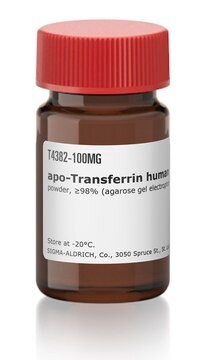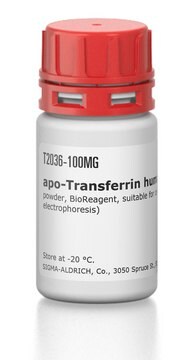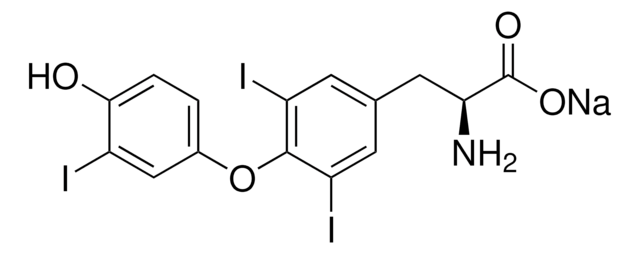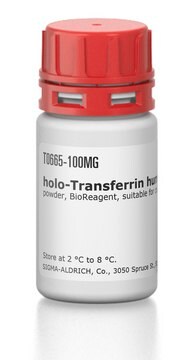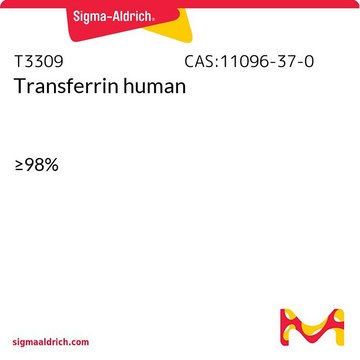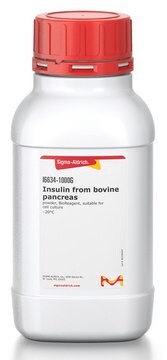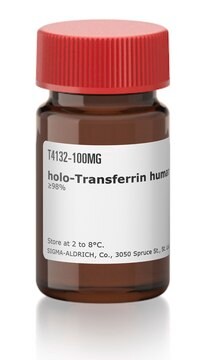T1147
apo-Transferrin human
powder, BioReagent, suitable for cell culture, ≥98% (agarose gel electrophoresis)
Synonym(s):
Human transferrin, Siderophilin
About This Item
Recommended Products
biological source
human plasma
Quality Level
product line
BioReagent
Assay
≥98% (agarose gel electrophoresis)
form
powder
mol wt
76-81 kDa
concentration
~25 mM
technique(s)
cell culture | mammalian: suitable
impurities
HIV and HBsAg, source material tested negative
≤0.005% iron
solubility
H2O: 50 mg/mL
UniProt accession no.
shipped in
wet ice
storage temp.
−20°C
Gene Information
human ... TF(7018)
Looking for similar products? Visit Product Comparison Guide
Application
Biochem/physiol Actions
Other Notes
Disclaimer
Storage Class Code
11 - Combustible Solids
WGK
WGK 3
Choose from one of the most recent versions:
Already Own This Product?
Find documentation for the products that you have recently purchased in the Document Library.
Customers Also Viewed
Articles
How transferrin and other cell culture components affect the performance of serum-free, protein-free cell culture systems used for biomanufacturing heterologous proteins including monoclonal antibodies. The page introduces the in vitro chemistry and biochemistry of transferrin.
Our team of scientists has experience in all areas of research including Life Science, Material Science, Chemical Synthesis, Chromatography, Analytical and many others.
Contact Technical Service
